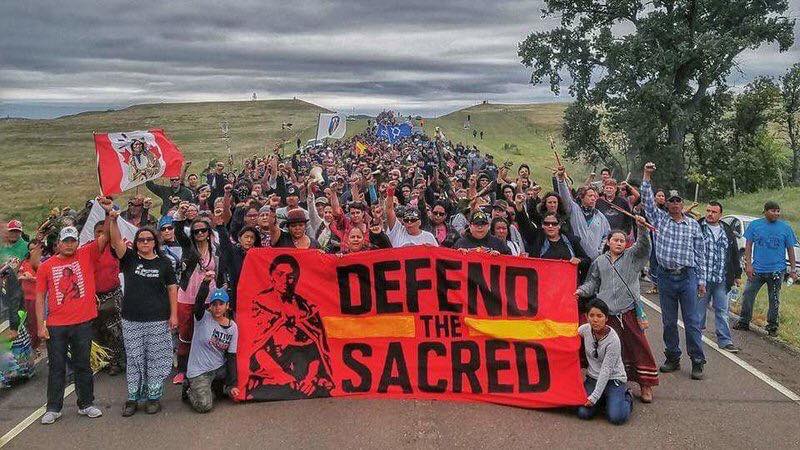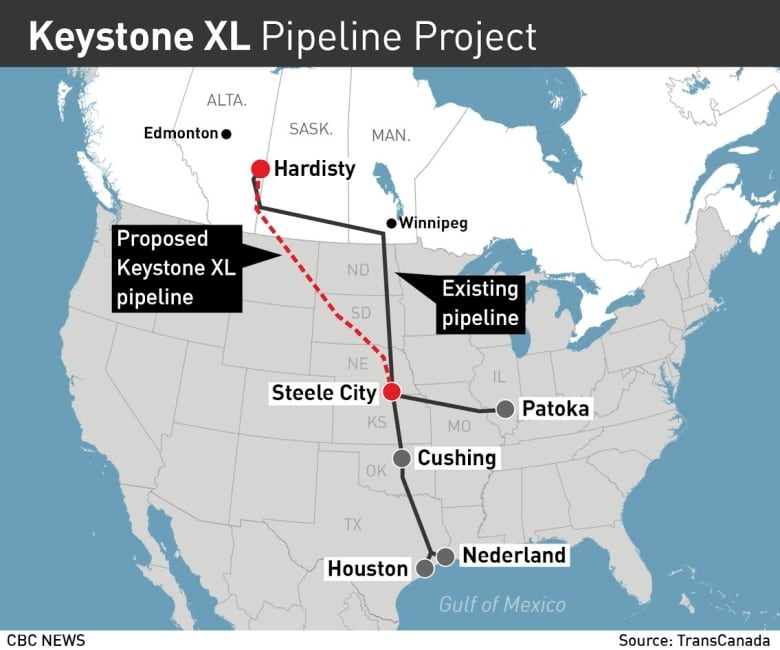You may remember the trending hashtag #NoDAPL in 2016 that many shared across social media in support of stopping the construction of the Dakota Access Pipeline in the United States. Recently, the Standing Rock Sioux tribe who opposed the project, as well as environmental groups that backed them, won a major environmental victory.
On July 6th, after four years of legal battles and the pipeline's construction, a federal judge ruled that the Dakota Access Pipeline must be shut down and emptied of oil by August 5th. This means that the sacred Sioux land and waters that the pipeline ran under are no longer threatened by the Pipeline. The sacred sites and prophecies relating to the area are important parts of Sioux culture and the shutting of the Pipeline shows recognition of First Nations' rights.

Image: NoDAPL Archive
The Standing Rock Sioux tribe's chairman Mike Faith celebrated the victory in a public statement and thanked their supporters. He also noted that, "This pipeline should have never been built here. We told them that from the beginning," reminding us of the tribe's protests, which started in April 2016 and lasted for months. DAPL filed an emergency motion shortly after, so the legal battle continues, but things are looking hopeful for the Standing Rock Sioux and the other Tribes they are working with.
Just a day before the #NoDAPL win, the Atlantic Coast Pipeline project was cancelled, which would have brought natural gas across the Appalachian Trail. The energy companies had faced too much legal pressure from environmentalists which had made the project very costly. It is inspiring to see how people power can make a positive change! Now, we need to build on this movement towards a clean energy future.
Here are some ways to get involved in stopping pipelines that threaten First Nation peoples' land, waterways, beautiful landscapes and continue our reliance on dirty energy sources.
1. Right now, a proposed Pebble Mine in Bristol Bay, Alaska is set to get new permits to allow the project to go forward. Activists, and a large number of people in the Bristol Bay community, are working to stop the project and protect the wild salmon runs that are in the area. The Save Bristol Bay website has an already completed online letter that anyone can edit, fill in with their name, and send Governor Dunleavy in Alaska to voice their opposition for the project. Supporters can also call his office through the same form, or can donate to the Save Bristol Bay organization so they can do more important work protecting watersheds!
2. The Keystone XL Pipeline, which would pass from Canada to the U.S. as part of a system of Keystone pipelines transporting crude oil, was stalled by the U.S. Supreme Court in early July. Before that, a federal judge had ruled that pipelines that cross bodies of water must get sufficient permits to ensure they are environmentally sound. However, President Trump vowed after the Supreme Court ruling that he would issue an executive order to construct the pipeline project.
On top of the environmental impacts, many rural communities would be threatened by the potential to contract Coronavirus if workers started construction near them. Bold Nebraska has started a petition to halt all construction, which is easy to sign on their website. In order to spread the word, there is also a pre-written tweet and Facebook post for anyone to share after signing, as well as a video to watch and share with your communities!

Image: CBC Canada
3. The Williams Pipeline has been proposed to run from Pennsylvania to New Jersey on the East Coast of the U.S. It would run under waterways and could threaten water and air quality, marine animals, and human health around beaches and water activities.The Action Network is circulating a petition to tell New York's Governor Cuomo to stop the pipeline project from happening. After signing, it is easy to share on social media, email to a friend, or embed it as a link on your blog or website to increase support
4. Stay updated about the DAPL pipeline project by following the timeline on EarthJustice. We can educate ourselves and spread the word about Indigenous resistance in the United States to our friends and family to motivate others to get involved, and see that the Standing Rock Tribe's efforts remain strong
5. Many environmental and social justice organizations have taken a pledge to divest from "pipeline banks," and move their money to banks that are more in-line with their values. This is a huge step in the right direction, considering that "the top global and U.S. banks provided $785 billion for fossil fuel infrastructure such as coal and tar sands development from 2013 through 2015." These groups include 350.org, Climate Hawks Vote, CREDO, Earth Guardians, Friends of the Earth, Green America, Honor the Earth, Institute for Policy Studies, League of Conservation Voters, The Hip Hop Caucus, Oil Change International, Potlatch Fund, Rainforest Action Network, Sierra Club and the U.S. Climate Action Network (USCAN). Donating to them means that you will be supporting a good cause, and you can have the peace of mind that they are not investing it in any planet-harming practices.
Writen by Kaylie Treskin
Kaylie is a recent graduate who is passionate about sustainable architecture, incorporating nature into cities in creative ways, and social justice activism. She likes to do art in her free time that is inspired by plants and people. You can follow her on Instagram @kayliecreates_, or connect with her on LinkedIn by looking up Kaylie Treskin.
